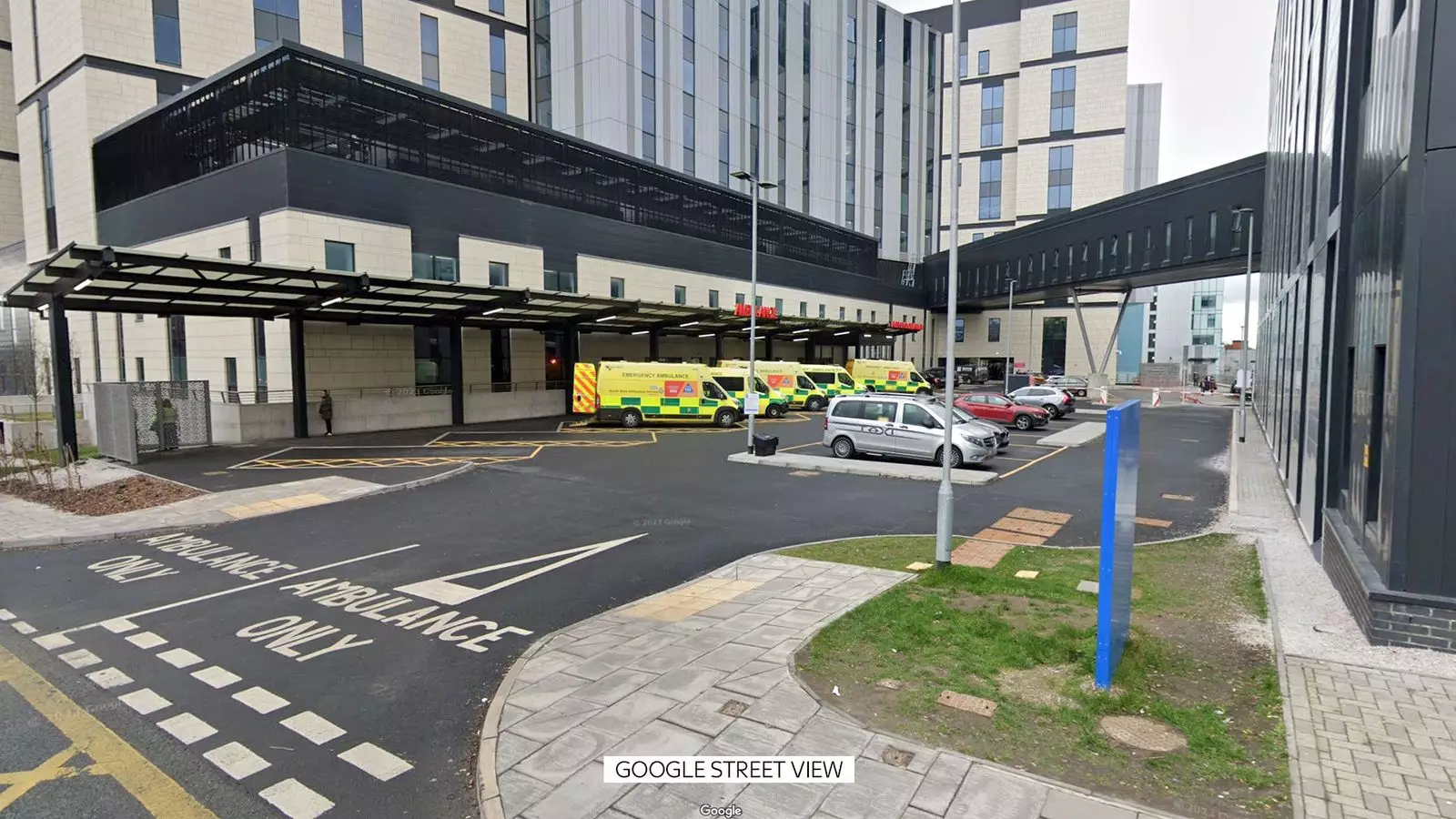Recently, the Royal Liverpool University Hospital faced an unprecedented challenge, declaring a critical incident in response to an overwhelming influx of patients in need of emergency care. This situation is not isolated but rather indicative of a broader trend affecting healthcare systems across England, fueled primarily by a significant rise in flu and respiratory illnesses. Within the last month alone, the NHS has reported a staggering fourfold increase in flu cases requiring hospitalization, painting a concerning picture of the current health landscape.
In light of these escalating demands, the hospital has assured the public that it possesses a “comprehensive plan” to navigate these waters effectively. Healthcare officials emphasize collaborative efforts with partner organizations to facilitate prompt discharges for patients who are medically stable. Such proactive measures not only help alleviate the immediate pressure on emergency services but also ensure that attention is focused where it is urgently needed — on the critically ill. However, the declaration of a critical incident underscores the somber reality that some patients may encounter delays in treatment as resources are ruthlessly prioritized for the most severe cases.
Alternatives to Emergency Departments
The Royal Liverpool University Hospital’s messaging encourages individuals with non-emergency situations to explore alternative avenues for care. Whether through consulting a general practitioner, visiting a pharmacy, or utilizing walk-in centers, the public is urged to think critically about the appropriateness of emergency care for their particular ailments. This approach reflects a broader strategy within the NHS to mitigate strain on emergency departments while ensuring those truly in need receive timely assistance.
Moreover, the current healthcare climate is further complicated by what many are referring to as a “quad-demic,” where multiple respiratory illnesses — including flu, norovirus, COVID-19, and RSV — circulate simultaneously. Health authorities have sounded alarms about the heightened risks posed this winter, exacerbating hospital pressures. With the NHS offering vaccinations against three of these illnesses, public health messaging emphasizes the critical importance of vaccination in curtailing the spread and severity of these diseases.
Outside Liverpool, similar scenarios are unfolding, as indicated by the recent declaration of a critical incident by the NHS Cornwall and Isles of Scilly Integrated Care Board. This echoes the consistent theme of a healthcare system under strain, grappling with staffing shortages and overwhelming patient numbers. The implications for the NHS as a whole are profound, as authorities scramble for solutions while navigating the complexities of underfunding, staffing levels, and public health initiatives.
The Royal Liverpool University Hospital’s critical incident serves as a microcosm of the larger challenges facing the NHS. As hospitals grapple with an influx of patients amid a uniquely challenging winter, it becomes imperative for all stakeholders — from healthcare providers to patients — to adapt collectively in the interest of health and safety. A collaborative, proactive approach is essential to ensure that medical resources are utilized efficiently while safeguarding the wellbeing of the community.

Leave a Reply